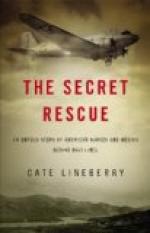This startling information, printed in sophomore red on big white placards, flamed from every available space in and about the campus the next morning. The nocturnal bill-posters had shown themselves no respecters of places, for the placards adorned not fences and walls alone, but were pasted on the granite steps of each recitation hall. All the forenoon groups of staid seniors, grinning juniors and sophomores, or vexed freshmen stood in front of the placards and read the inscriptions with varied emotions. But in the afternoon a cheering mob of the “infants” marched through the college and town and tore down or effaced every poster they could find. But they didn’t get as far from the campus as the athletic field, and so it was not until Neil and Paul and one or two other freshmen reported for practise at four o’clock that it was discovered that the high board fence surrounding the field was a mass of the objectionable signs from end to end.
“Oh, let them stay,” said Neil. “I think they’re rather funny myself. And as for their stopping the freshman dinner, why we’ll wait and see. If they try it we’ll have our chance to get back at them.”
“R-r-revenge!” muttered South, who, with a lacrosse stick over his shoulder and an attire consisting wholly of a pair of flapping white trunks, a faded green shirt, and a pair of canvas shoes, had come out to join the lacrosse candidates.
“King suggested our getting some small posters printed in blue with just the figures ‘’05’ on them, and pasting one on every soph’s window,” said Paul, “but Livingston wouldn’t hear of it. I think it would be a good game, eh?”
“Faculty’d kick up no end of a rumpus,” said South.
“I haven’t heard that they are doing much about these things,” answered Paul. “If the sophs can stick things around why can’t we?”
“You’d better ask the Dean,” suggested Neil. “Hello, who’s that chap?”
They had entered the grounds and were standing on the steps of the locker-house. The person to whom Neil referred was just coming through the gate. He was a medium-sized man of about thirty years, with a good-looking, albeit very freckled face, and a good deal of sandy hair. The afternoon was quite warm, and he carried his straw hat in one very brown hand, while over his arm lay a sweater of Erskine purple, a pair of canvas trousers, and two worn shoes.
“Blessed if I know who he is!” murmured South. They watched the newcomer as he traversed the path and reached the steps. As he passed them and entered the building he looked them over keenly with a pair of very sharp and very light blue eyes.
“Wow!” muttered Paul. “He looked as though he was trying to decide whether I would taste better fried or baked.”
“I wonder—” began Neil. But at that moment Tom Cowan came up and Paul put the question to him.
“The fellow that just came in?” repeated Cowan. “That, my boy, is a gentleman who will have you standing on your head in just about twenty minutes. Some eight or ten years ago he was popularly known hereabouts as ‘Whitey’ Mills. To-day, if you know your business, you’ll address him as Mister Mills.”




